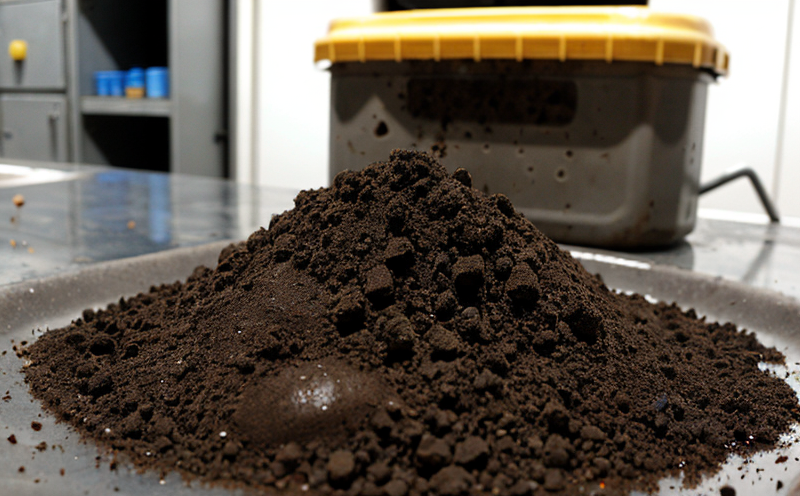Furniture Residual Contaminant Testing
Furniture residual contaminant testing is a critical process that ensures the safety and quality of furniture products. This service involves identifying and quantifying contaminants present in finished furniture to ensure compliance with international standards and regulatory requirements. Furniture, as an integral part of our daily lives, can harbor various contaminants such as formaldehyde, heavy metals (like lead), flame retardants, and other chemicals that may pose health risks if not properly controlled.
Residual contaminant testing is essential for quality managers, compliance officers, R&D engineers, and procurement teams. It helps in maintaining a high standard of safety and quality, thereby protecting end-users from potential health hazards. This service typically involves the use of advanced analytical techniques such as Gas Chromatography-Mass Spectrometry (GC-MS), High Performance Liquid Chromatography (HPLC), Inductively Coupled Plasma Mass Spectrometry (ICP-MS), and Fourier Transform Infrared Spectroscopy (FTIR).
The testing process begins with the selection of appropriate samples that represent the furniture type being tested. Specimen preparation involves cutting the sample to a standard size, ensuring homogeneity, and preserving it under controlled conditions until analysis is conducted.
Once the specimens are prepared, they undergo a series of analyses aimed at detecting and quantifying contaminants. The identification process can involve mass spectrometry for volatile organic compounds (VOCs), inductively coupled plasma spectroscopy for heavy metals, and infrared spectroscopy for flame retardants. Acceptance criteria are based on international standards such as ISO 17236:2014 for formaldehyde, EN 71-3:2019 for lead content, and ASTM D7854-18 for flame retardants.
The results of the testing process provide a comprehensive report detailing all detected contaminants along with their respective concentrations. This information is crucial for manufacturers to make informed decisions about product safety and quality improvements. For instance, if unacceptable levels of formaldehyde or lead are found, corrective measures can be implemented promptly to address these issues.
Moreover, this testing service plays a pivotal role in ensuring compliance with various regulatory requirements across different jurisdictions. By adhering to stringent international standards like those mentioned above, manufacturers demonstrate their commitment to producing safe and high-quality furniture products.
Eurolab Advantages
Eurolab is committed to providing unparalleled expertise in furniture residual contaminant testing. With state-of-the-art facilities and a team of highly qualified professionals, we offer unmatched precision and reliability in our analytical processes.
- Comprehensive Analysis: Our lab uses the latest technology to identify and quantify multiple contaminants simultaneously, ensuring comprehensive results.
- Accurate Reporting: We provide detailed reports that comply with international standards, offering clarity and transparency for all stakeholders involved.
- Fast Turnaround Time: Leveraging our efficient processes and experienced staff, we ensure timely delivery of reports to meet your project deadlines.
- Regulatory Compliance: Our services are designed to help you stay compliant with various national and international regulations related to furniture safety.
Eurolab’s reputation for excellence is built on years of experience in the chemical testing sector. We pride ourselves on delivering accurate, reliable, and timely results that meet or exceed customer expectations.
Why Choose This Test
- Health and Safety: Ensures the safety of consumers by detecting potentially harmful contaminants in furniture products.
- Regulatory Compliance: Helps manufacturers comply with international standards and regulatory requirements, avoiding legal issues and penalties.
- R&D Support: Provides valuable data for R&D teams to innovate safer and more sustainable product designs.
- Customer Satisfaction: Builds trust and loyalty among customers by delivering high-quality furniture products.
The importance of this test cannot be overstated, particularly in today’s climate where consumer awareness about health and safety issues is growing. By choosing Eurolab for your furniture residual contaminant testing needs, you not only enhance product safety but also contribute positively to the environment by promoting sustainable practices.
Competitive Advantage and Market Impact
Furniture manufacturers who invest in rigorous residual contaminant testing gain significant competitive advantages. By detecting and mitigating potential risks early on, they can avoid costly recalls and brand damage. This proactive approach also enhances customer trust and satisfaction, leading to increased market share and profitability.
- Innovation: Continuous improvement of products based on test results fosters innovation within the company.
- Maintaining Brand Reputation: Ensures that the brand remains associated with quality and safety in the minds of consumers.
- Market Differentiation: Demonstrates a commitment to excellence, setting your products apart from competitors.
The global market for furniture is vast, but maintaining high standards can be challenging. By choosing Eurolab’s furniture residual contaminant testing services, you position yourself as a leader in the industry, capable of meeting even the most stringent requirements and expectations.





